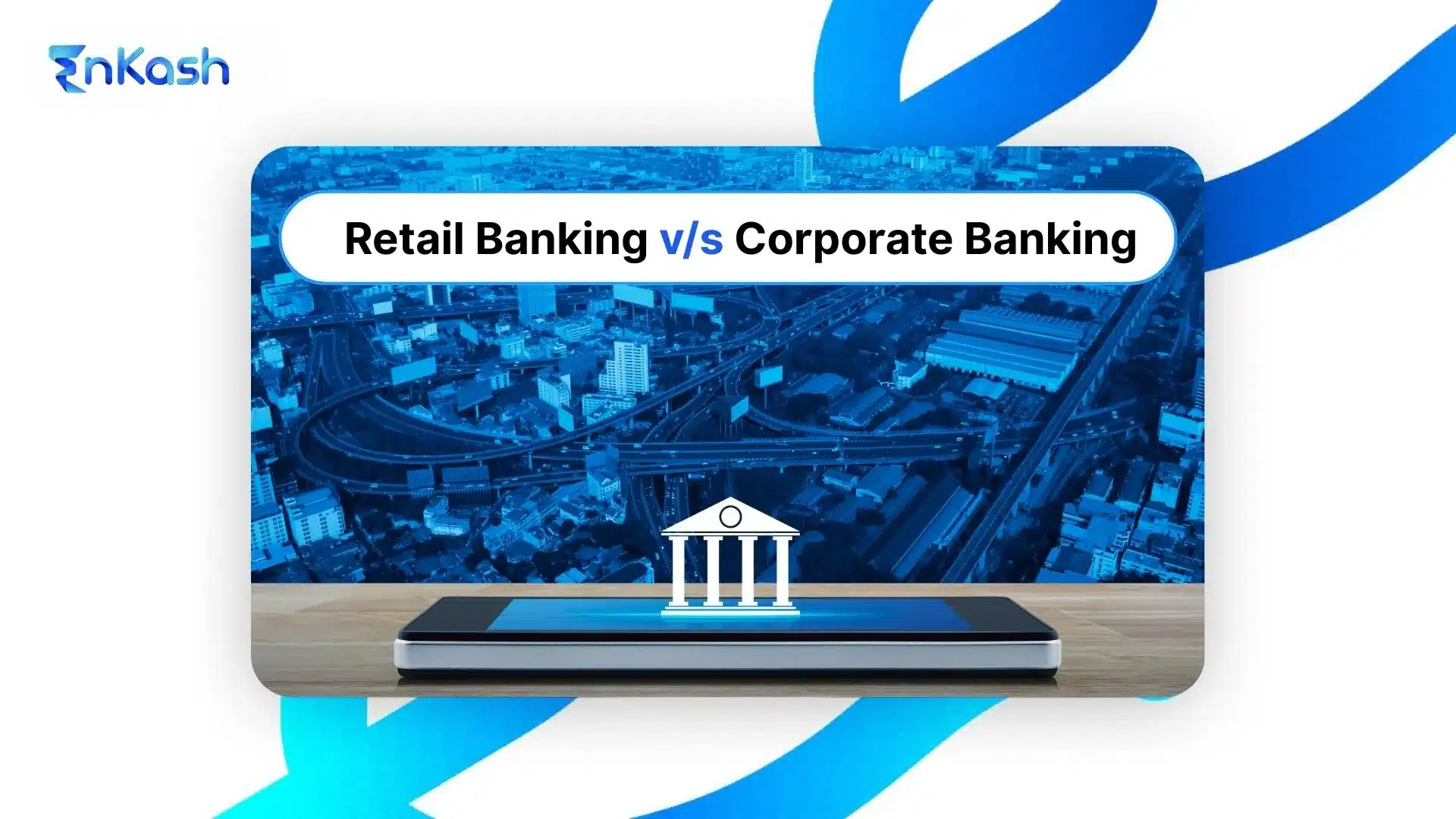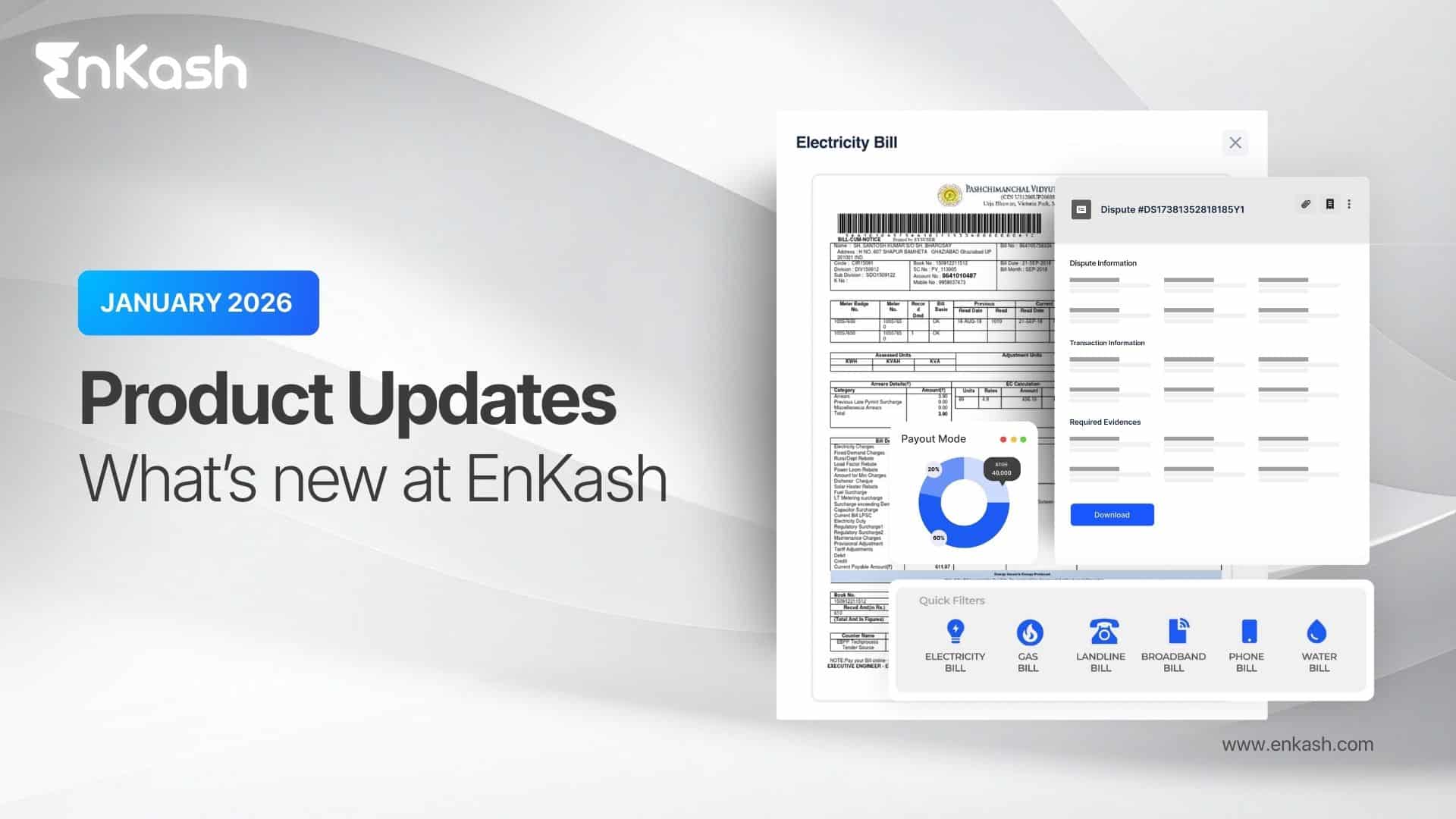Introduction
Banking, according to the demand in India, may be majorly classified into the retail and corporate categories. Banking, according to the demand in India, may be majorly classified into the retail and corporate categories. Understanding the difference between retail and corporate banking is important to choosing the right financial services. Whether you are an individual making day-to-day transactions or a business undertaking transactions on a huge scale, the Knowledge of what constitutes retail and corporate banking will help you make better decisions. This blog will explain a few of the things that make retail banking and corporate banking different: their definitions, features, users, and functions, and also help you understand how the two fit into the types of banking available in India.
What Is Retail and Corporate Banking?
Retail and Corporate Banking are two broad segments of the industry, with each serving a different set of customers and offering an array of financial services. For a layman’s understanding of retail and corporate banking: Retail banking services cater to individual customers by offering savings accounts, current accounts, fixed deposits, housing loans, personal loans, credit and debit cards, and many more services related to daily financial requirements. It caters to mass-market services and banking, most of which we interact with daily.
So, if we think about what retail banking is, it really is the banking we do on a personal basis. Whereas corporate banking caters to businesses, corporations, and large institutions. It comprises complicated financial services such as working capital finance, commercial lending, structured credit, cash and treasury management, and trade finance, to name just a few. Business banking is also called wholesale banking – the delivery of customized financial solutions to companies so that they can successfully manage their operations and grow. So, what exactly is corporate banking?
It is that kind of banking that provides the financial support needed for the functioning and very high-value transactions. So, in discussing types of banking in India, it is important to understand these terms, particularly when differentiating retail banking and corporate banking.
Features of Retail Banking
Retail banking caters to the financial needs of individual consumers. Its main aim is to make banking easy, convenient, and personal. The following are the features and services that distinguish retail banking:
Personalized Banking Services
Retail banking deals with individuals and strives to make access to its services and their management as easy as possible. Be it opening a savings account or applying for a personal loan, all procedures are made as simple as possible.
Savings and Current Accounts
One of the primary retail banking activities is to provide savings accounts and current accounts for their clientele so that they can deposit, withdraw, and maintain their daily finances in a smooth way.
Personal, Home, and Auto Loans
Retail banks offer their customers several loan products, such as loans for emergencies, home loans for the purchase of apartments or houses, and auto loans to buy vehicles. These loans are generally offered at competitive interest rates with flexible repayment terms.
Debit and Credit Card Facilities
Retail customers have access to debit cards, which are linked to their bank accounts, and credit cards, which enable them to borrow funds for purchases. Along with these options, there are bonuses attached to higher benefits that include cashback and reward points, as well as EMI options.
ATM and Branch Access
Retail banks provide ATM services with cash withdrawal and printing of mini-statements. Also, customers can physically visit branches to seek face-to-face support, open their bank account, and carry out other banking-related services.
Internet and Mobile Banking
Arguably, the most important feature today is online banking services. Internet banking and mobile banking apps enable the retail customer to create, operate, make payments, and invest in financial products.
Easy Fund Transfers and Bill Payments
The retail bank grants easy fund transfer through NEFT, RTGS, IMPS, and UPI. Customers can also schedule and automate bill payments for electricity, phone bills, and insurance premiums.
Financial Products and Services
Retail banking offers investment products such as fixed deposits, recurring deposits, mutual funds, and insurance. It is mainly used by individuals for the gradual growth of their fund.
Features of Corporate Banking
Being known as business or wholesale banking, corporate banking is set up to complement the special needs of businesses and large organizations. Here are the features that distinguish corporate banking:
Customized Credit and Loan Solutions
Corporate banking offers credit facilities customized to a business’s needs: business loans, working capital finance, and overdrafts. They are structured and arranged after checking the financial soundness of the business and its operations.
Cash Management Services
Managing cash flow is necessary for the smooth running of any business. Corporate banks provide services to collect and disperse cash and facilitate payments to aid an organization in making its liquidity management efficient.
Trade Finance and Letter of Credit
Trade finance, letters of credit, and bank guarantees are important for international trade. They allow the smooth conduct of import and export operations with payment assurances.
Treasury and Forex Services
Corporate banks offer treasury services to preserve huge cash reserves, and foreign exchange services to corporations that trade in multiple currencies. Hence, these services help to hedge currency risks and enhance investments.
Risk Management and Advisory
There are many risks in the corporate world. There are risk management techniques that banks can advise on, ensuring their clients’ long-term financial stability and compliance with regulations.
Merchant and Payment Services
Merchant services that may be used by the business to receive payments from its customers include POS terminals, UPI QR codes, and payment gateways.
Investment Banking Support
Investment banking may also be provided to large corporations in underwriting, M&A advisory, and capital raising activities.
Relationship Management
Corporate banking provides dedicated relationship managers who understand the unique requirements of the business and offer tailored financial solutions accordingly.
Retail Banking vs Corporate Banking
To understand retail banking vs corporate banking, here’s a quick comparison:
Aspect |
Retail Banking |
Corporate Banking |
|---|---|---|
Customer Base |
Serves individuals, salaried people, and small account holders. |
Serves large businesses, corporations, institutions, and government entities. |
Types of Services |
Savings accounts, personal loans, credit/debit cards, auto loans, and home loans. |
Working capital loans, commercial credit, trade finance, foreign exchange. |
Transaction Volume & Value |
Greater volume of transactions, but low in value. |
Greater value transactions, but fewer in number. |
Documentation & Process |
Procedures are simple with minimal paperwork and fast processing. |
Intense documentation, due diligence, and regulatory compliance. |
Digital Access |
Strong digital accessibility through mobile and net banking apps. |
Custom access provided through secured portals or managed platforms. |
Revenue Model |
Income is generated through interest, service charges, and volume. |
They earn through interest, fees, treasury operations, and advisory services. |
Types of Banking in India
Retail Banking
Retail banking refers to the banking system that interacts directly with the customer. People who engage in retail banking activities provide facilities such as savings and current accounts, personal loans, home loans, credit cards, and digital banking. A retail bank strives to make banking easy and accessible to common people.
Corporate Banking
The corporate banking services offered cater to companies, institutions, and large businesses and are also known as business or wholesale banking. It includes aspects of working capital financing, trade finance, treasury solutions, and commercial lending. These are more complex services designed to suit business operations and their growth.
Rural Banking
Rural banking meets the financial needs of individuals in rural and semi-urban areas. These banks dispense loans for agricultural activities and other activities through microfinance schemes; they also give a few savings options for farmers, small entrepreneurs, and rural households with the aim of promoting financial inclusion and rural development.
Cooperative Banking
Cooperative banks are established by cooperative societies and are owned and operated by their members. It is a domain popular among rural and semi-urban populations, offering credit facilities at reasonable rates of interest. These banks provide credit and deposit services in the fields of agriculture, small industries, and self-help groups.
Private Banking
Private banking provides wealth management and investment services to high-net-worth individuals (HNWIs) and ultra-HNWIs Its operations vary from investment advisory, estate planning, and taxation-based solutions to innumerable other services aligned to the financial goals of high-net-worth clients.
Investment Banking
Investment banks facilitate the capital-raising function and provide facilities like acquisition and merger, underwriting, and finance advisory. Their clientele is mostly composed of large corporations, governments, and institutional investors.
Development Banking
Development banks provide funding to infrastructure and industrial projects of economic importance. They provide long-term capital to sectors such as transport, power, and manufacturing.
Who Uses Retail Banking
Retail banking is mainly intended for individual customers who need to fulfill their everyday financial needs. It is the most common form of personal finance. The categories are the major user groups:
Salaried Employees
Salaried persons usually keep their salary accounts with retail banks; they also avail themselves of retail banking-based loans, credit cards, and savings schemes.
Students
Students usually open savings bank accounts for pocket money management and obtain education loans through retail banks.
Pensioners
These retired persons depend on retail banks for pension disbursement, fixed deposits, and savings schemes for senior citizens.
Homemakers and Small Savers
Those engaged in household expense management or saving small amounts often rely on retail banks as they offer ease of account access and low maintenance.
General Public
Persons who require a savings or current account, ATM services, mobile banking, or financial advisory services can avail the services of retail banking.
Retail banks allow one to buy financial services through brick-and-mortar bank branches, ATMs, websites, or mobile applications-with the potential ideal for individual and family use.
Who Needs Corporate Banking?
Corporate banking is oriented toward providing additional services to companies and organizations with nonstandard or specialized financial needs. This act of providing support extends to the financial operations of both small companies and big enterprises.
Business Owners
Business owners and entrepreneurs use corporate banking in the management of business accounts, business loans, and cash flow management.
Large Enterprises
Established companies are in need of corporate banking services for large-volume transactions, treasury operations, and long-term financing.
Startups and SME
In the case of new businesses or SMEs, corporate banking services may be needed to pay vendors, pay salaries, and arrange for initial funding.
Exporters and Importers
Corporate banking also provides foreign exchange services, trade finance, and documentary credits for export-import trades.
Government and Institutions
On the public side, several public sector organizations and institutions use corporate banking for structured financing and bond issues, among others, while on the private side of commercial banking, treasury management services are offered.
Corporate banking is relationship-driven, with dedicated account managers providing tailored financial solutions based on a company’s profile and needs.
Choosing Between Retail and Corporate Banking: What’s Right for You?
Ultimately, your choice depends on your needs and financial aspirations. Retail banking, for instance, serves if you are individuals requiring some straightforward products-such as savings or current accounts, debit, and credit cards, or even personal, education, or home loans. Retail banks serve salary account holders, students, pensioners, and small depositors who typically prefer low charges, low minimum balances, and easy access through ATMs or mobile banking. In simple terms, retail banking is for your requirements concerning managing your finances, performing day-to-day transactions, and simple financial planning.
However, corporate banking caters to companies, startups, and large enterprises and handles high-value transactions and complex financial arrangements. This type of banking caters to companies with services that get special treatment, like business loans, overdraft facilities, lines of credit, trade finance, and payroll management. Corporate clients get unique financial solutions through their relationship managers, who also provide strategic advisory. If you are into business setup or international trade and need instruments of finance for big activities, this is when corporate banking proves apt with the required structure and flexibility. Understanding these differences allows you to choose a banking solution that aligns with your financial situation—whether for personal comfort or professional growth.
Conclusion
Retail and corporate banking have their own distinct importance in the Indian financial ecosystem. Retail banking tends to the needs of individuals by providing easy service options like savings accounts, loan facilities, and cards that help them in handling personal finance management. On the contrary, corporate banking supports growing business activities by offering credit, trade finance, and payroll-related services, among others, thereby aiding in economic development. Understanding the fundamental differences and advantages of these two helps you make informed financial decisions. Be it handling your expenses or running your business, the choice of the right banking service shall define your economic standing for growth and long-term success in a fast-paced economic environment.










